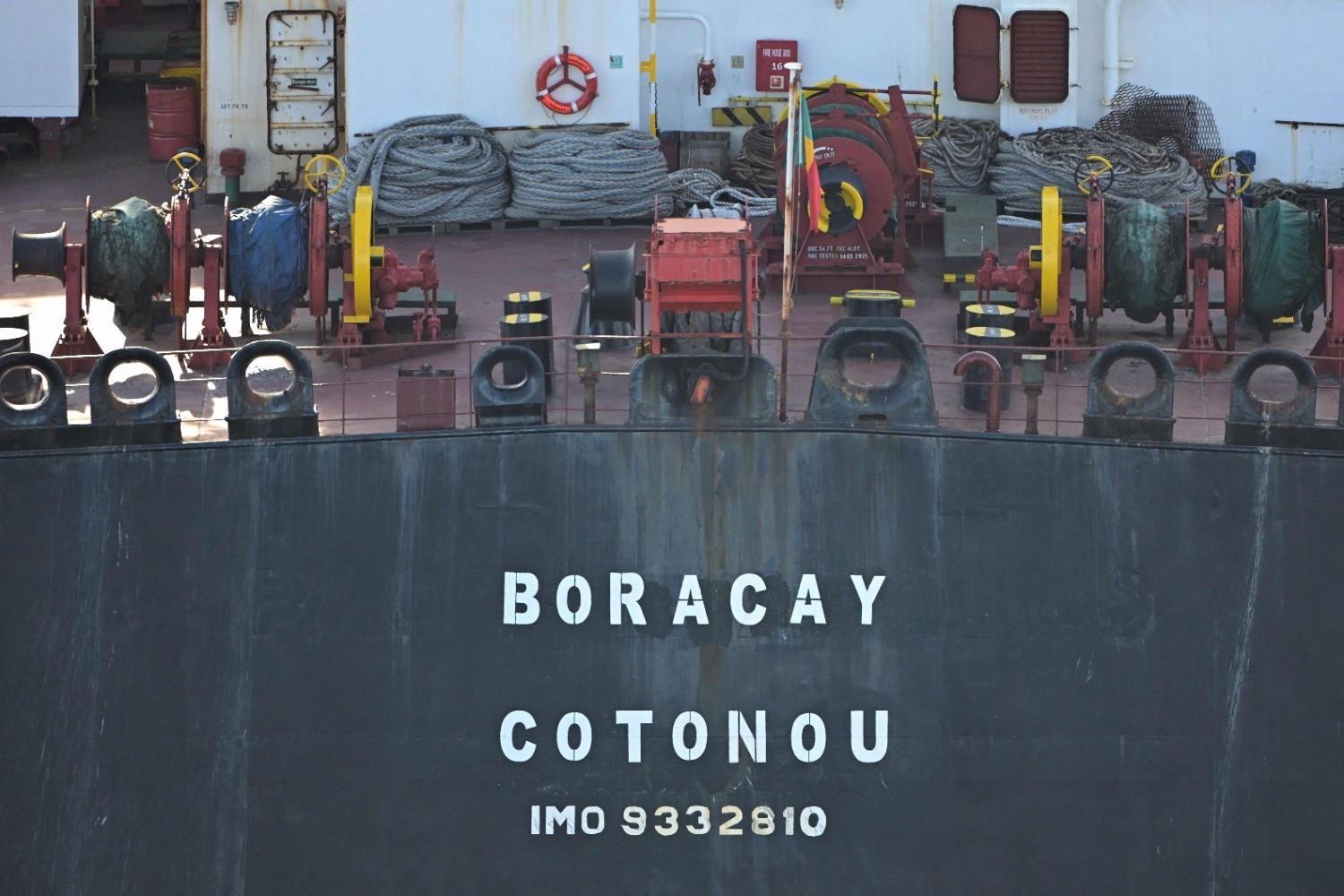
This aerial picture taken on Oct. 1, 2025 off the coast of the western France port of Saint-Nazaire shows the tanker Boracay from Russia's so-called "shadow fleet" suspected of being involved in drone flights over Denmark which sailed off the Danish coast between Sept. 22 and 25.
A tanker from Russia's "shadow fleet" detained by the French navy was heading towards the Suez Canal Friday with its captain back on board, according to data from maritime websites and a source close to the case.
The Boracay, blacklisted by the European Union for being part of Russia's sanctions-busting "shadow fleet" of ageing oil tankers, has been linked to mysterious drone flights over Denmark last month.
It had been boarded by French authorities on Saturday and its captain and first mate detained.
But it resumed its journey Thursday evening and was off the coast of western France on Friday morning, data from vessel tracking websites Marine Traffic and Vesselfinder showed.
The tanker's Chinese captain -- who had been due to appear in a French court in February over failing to comply with orders from the French navy -- and first mate were back on board, a source close to the case said.
"They were brought back to their ship after being released from custody," a source close to the case requesting anonymity told AFP.
'Piracy'
French prosecutors said Thursday the vessel was stopped over inconsistencies in where it was officially registered while it was carrying a "large cargo of oil" from Russia to India. It claims to be flagged in Benin.
The ship has been linked to the series of mysterious drone flights over Denmark last month, including military sites, part of a recent spate of drone sightings and airspace violations in European countries blamed on Russia -- though Moscow denies responsibility.
The ship's detention and these airspace incidents are adding to tension between European nations and Moscow, already riding high over Russia's war on Ukraine.
Russian President Vladimir Putin on Thursday called France's detention of the Boracay "piracy" and vowed a "significant" response to what he called European threats.
French President Emmanuel Macron hailed the move, urging European countries to do more to thwart Moscow's efforts to skirt Western sanctions imposed after the 2022 invasion of Ukraine.
Macron said Europe needed to "kill the business model" of using ageing, foreign-flagged tankers to transport Russian oil by detaining such ships.
He said military chiefs of countries in the European-led "coalition of the willing" supporting Ukraine would hold talks "in the coming days" on how to disrupt the so-called shadow fleet.
'Billions of euros'
Estimated to include up to 1,000 ships, the "shadow fleet" is thought to represent "tens of billions of euros of Russia's budget" and make up "40 percent of the Russian war effort", according to Macron.
The vessels -- which fly flags of convenience, have opaque ownership and often turn their transponders off -- enable Moscow to keep exporting its crude oil for much-needed revenue despite curbs on exports.
Some of these ships are suspected of also carrying out sabotage operations.
According to shipping data analysed by AFP, the Boracay -- which has also been named the Pushpa or the Kiwala -- was positioned off Denmark during last month's drone incursions, which prompted brief airport closures.
But Macron stopped short of confirming reports of a connection to the Denmark drone flights.
A military source told AFP Russian ships were common off the French coast.
"Every day, between 10 and 15 vessels from the 'shadow fleet' sail off the coast of Brest," the source said.
The tanker left the Russian port of Primorsk near Saint Petersburg on Sept. 20, shipping data showed.
According to data from the Marine Traffic tracker, the vessel was scheduled to arrive in Vadinar in northwestern India on Oct. 20.